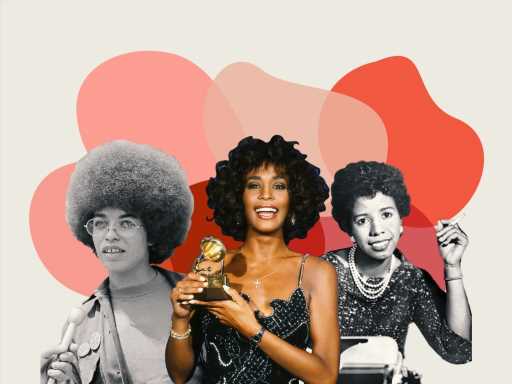If we learned anything over the past few years, it’s that Black History Month is both incredibly important to this country and a woefully inadequate substitute for integrating all peoples’ histories into our understanding of what the U.S. was and is. In short, by know we should all be pretty firm in the fact that we need to learn and review Black history every month of the year. But since we do have “Black History” marked on our calendars every February, it is also an excellent time to sit down with our children and speak to them about the varied contributions and accomplishments Black people have made in the U.S., often against tremendous odds.
First, explain to your kids what “Black history” means
What is Black History Month? It is a 28-day recognition of the achievements of all Black folks, but specifically African Americans. Originally called “Negro History Week” (ugh) in February of 1926 by Carter G. Woodson, the founder of the Association for the Study of Negro Life, the annual celebration became a monthlong event and was renamed sometime after the 1960s.
The purpose of this month is to celebrate the endeavors and accomplishments of Black people throughout history — from the inventor of the Eder-Berry biopsy gastroscope to the first black president. But most important, it’s about the epic challenges and struggles Black Americans have had to overcome in order to reach those successes — from slavery to the civil rights struggles of the 20th century to today’s Black Lives Matters movement.
https://www.instagram.com/p/CKwQEfqp8Vu/
A post shared by NMAAHC (@nmaahc)
Second, read up on diversity
Let’s be honest. Talking about diversity isn’t always easy, especially when that discussion is with young children. But luckily, there are many books for kids and adults that teach powerful black history subjects in colorful and enlightening ways. Here is some of the best Black history reading out there for adults so you can read up before tackling the topic with your kids.
- The Hate U Give by Angie Thomas
- The Slave Ship by Marcus Rediker
- Women, Race, and Class by Angela Y. Davis
- Negroland: A Memoir by Margo Jefferson
- Between the World and Me by Ta-Nehisi Coates
If your child is school-age, here are a few great books — available at local libraries, bookstores, and even via e-book — to suggest they read or that you can read together. These stories are great for sparking an important conversation about racial equality — and there are a lot more books out there about all forms of diversity.
- The Crayon Box That Talked by Shane Derolf (ages 3 and up)
- Let the Children March by Monica Clark-Robinson (ages 6 to 9)
- Who Is Barack Obama? by Roberta Edwards (age 8 to 12)
- 50 Black Women Who Changed America by Amy Alexander (ages 12 and up)
- The Color Purple by Alice Walker (ages 14 and up)
Next, watch history together
There are a variety of ways to teach kids about Black history, and watching movies just happens to be one of the most fun methods. What kid would object to grabbing a snack, popping in a movie, and getting comfortable to learn about important topics? You can stream a film on Netflix, Hulu, Disney+ or Amazon — we recommend The Loving Story or Barry, as well as the 1977 miniseries Roots (and its 2016 revival).
https://www.instagram.com/p/CKRdnQRp1lU/
A post shared by NMAAHC (@nmaahc)
Invite kids to listen to inspiring Black musical artists
Crank up some tunes for a Black History Month party with the kids. Put on some Stevie Wonder, Ray Charles, Prince, Aretha Franklin, Quincy Jones, Whitney Houston, Ella Fitzgerald, Nina Simone, Grace Jones, Beyoncé, Kendrick Lamar (OK, maybe just the PG-13 songs), and let the music speak for itself. Just don’t try to list every talented Black singer, songwriter, producer, musician, etc. — that would take centuries.
Teach them about Black icons
There have been great black Americans throughout history. From the original Black legends (like Harriet Tubman and Frederick Douglass) to Civil Rights Movement icons (like Martin Luther King Jr., Angela Davis, and Audre Lorde) to the amazing Black leaders of your kids’ lifetime (hi, Obamas, and Madame VP Kamala Harris), Black activists, authors and thinkers have shaped what America is today. Inventors like Leonidas Berry and George Washington Carver, authors like Maya Angelou and Lorraine Hansberry, lawyers like George Washington Williams, educators like Booker T. Washington, politicians like Shirley Chisholm and Maxine Waters, major business owners like Chris Gardner … Black Americans have made countless contributions to our country.
Sites to learn even more
Thanks to the internet, you can explore black history with your children and learn together. Some of our favorite resources for Black History Month include:
The National Museum of African American History & Culture
National Archives
The 1619 Project
African American Museum in Philadelphia
Ferris State University’s Jim Crow Museum
A version of this story was published in February 2018.
Our mission at SheKnows is to empower and inspire women, and we only feature products we think you’ll love as much as we do. Please note that if you purchase something by clicking on a link within this story, we may receive a small commission of the sale and the retailer may receive certain auditable data for accounting purposes.
Add these great books by Black authors and illustrators to your child’s bookshelves.

Source: Read Full Article

